Table of Contents
Case Study: Car Jerks and Loses Power While Driving, Mercedes-Benz CLA with M270 Engine
When a Mercedes-Benz begins to jerk or lose power during acceleration, it’s more than just a driving annoyance it’s often an early warning of a deeper mechanical or fuel delivery issue. In this case study, we diagnose a Mercedes-Benz CLA equipped with the M270 engine, where inconsistent acceleration and power loss were traced to a failing high-pressure fuel pump (HPFP).

Customer Complaint
The customer reported that the vehicle jerks, engine lights on and loses power while driving, especially under acceleration or while overtaking.
The issue worsened when the car was under load, making it difficult to maintain smooth throttle response or steady cruising speed.
Step 1: Initial Inspection and Road Test
The technician conducted a road test to confirm the complaint.
During acceleration, the vehicle exhibited intermittent jerking, hesitation, and brief power loss, confirming the customer’s concern.
No check engine light appeared, suggesting the fault might be occurring intermittently not enough to trigger a stored DTC (Diagnostic Trouble Code).
Step 2: Diagnostic Scan and Live Data Analysis
Using the STAR XENTRY Diagnostic Tool, a full system scan was performed.
Interestingly, no stored fault codes related to the drivetrain or engine management system were found.
To uncover live performance data, the technician monitored fuel pressure readings during real-time driving conditions.
The data revealed:
- – Low fuel pressure during acceleration,
- – Inconsistent readings in the high-pressure circuit, confirming a possible HPFP malfunction.
This was a classic case of a real-time fault undetectable by static code scans but evident in live data monitoring.

Step 3: Verifying the Fuel Delivery System
To confirm the source of the problem, the technician inspected the entire fuel delivery network step by step:
- 1. Low-Pressure Pump (In-Tank):
- – Function tested and found normal; no pressure drops or voltage issues.
- 2. Fuel Filter:
- – Inspected and confirmed clean and unobstructed.
- 3. Fuel Lines and Connectors:
- – Checked for leaks, restrictions, and kinks none found.
- 4. High-Pressure Fuel Pump (HPFP):
- – Observed to produce unstable pressure under load, confirming internal failure.

Step 4: Repair , Replacing the High-Pressure Fuel Pump
The defective high-pressure fuel pump was replaced with a genuine OEM unit to ensure proper pressure calibration and compatibility.
Post-installation steps included:
- – Bleeding the fuel system to remove trapped air,
- – Resetting pressure adaptation values using the diagnostic tool,
- – Clearing all temporary fault data and performing a final drive test.

Step 5: Post-Repair Verification
After repair, the vehicle underwent another dynamic road test while monitoring live data:
=> Fuel pressure remained stable across all RPM ranges.
=> Acceleration was smooth and responsive.
=> No hesitation or jerking was detected during load transitions.
The jerking and power loss issue was completely resolved, confirming the diagnosis.

Root Cause Summary
| Component | Fault | Symptom | Fix |
|---|---|---|---|
| High-Pressure Fuel Pump (HPFP) | Internal failure under load | Jerking, hesitation, and loss of power | Replaced with OEM HPFP, reset adaptation values |
Expert Insights
This case demonstrates how fuel delivery problems can mimic transmission or ignition faults in modern Mercedes engines like the M270.
Even without visible fault codes, live data diagnostics can reveal hidden pressure drops or fuel starvation issues.
Ignoring these early warning signs can lead to:
- – Turbocharger strain,
- – Injector failure,
- – Or catalytic converter damage due to misfires.
Final Thoughts
A jerking or power loss issue in your Mercedes should never be ignored. Early diagnosis using XENTRY or equivalent diagnostic tools is essential to prevent further engine damage and ensure safe driving performance.
If your Mercedes jerks, surges, or loses power, it may be time to inspect the fuel system, ignition components, or transmission behavior to identify the underlying cause.
For a deeper understanding of related transmission and power delivery issues, visit our full hub:
Mercedes Check Engine Light: Complete Troubleshooting Hub explore detailed case studies and expert guides on diagnosing shifting delays, power loss, and drivetrain faults in Mercedes-Benz models.
FAQs: Car Jerks and Loses Power While Driving
What are the symptoms of a failing high-pressure fuel pump?
A failing high-pressure fuel pump (HPFP) in your Mercedes can cause several noticeable performance problems, especially in engines like the M270 that rely on precise direct injection.
Common symptoms include:
- – Jerking or hesitation during acceleration
- – Loss of power under load or uphill driving
- – Hard starting or rough idling
- – Delayed throttle response
- – Engine stalling or surging intermittently
In many cases, the check engine light may not appear because the fault occurs dynamically under driving conditions. Running a live data analysis with a STAR Diagnosis (XENTRY) tool can confirm the issue by showing abnormally low fuel pressure readings during acceleration.
Is it safe to drive if my car jerks while accelerating?
No, it’s not safe to continue driving if your Mercedes jerks or loses power while accelerating.
Jerking is often a sign of inconsistent fuel delivery, ignition misfires, or transmission faults, all of which can lead to sudden loss of power or engine stalling dangerous in high-speed or overtaking situations.
Continuing to drive can also damage sensitive components like the turbocharger, injectors, or catalytic converter.
It’s best to have the vehicle inspected immediately by a qualified Mercedes technician to identify whether the cause is a failing high-pressure fuel pump, ignition coil, or sensor malfunction.
Author
Written by: Mercedes Expert
Automotive Technical Trainer & Mercedes-Benz Diagnostic Specialist
With years of hands-on experience repairing and diagnosing Mercedes-Benz vehicles, specializes in case-study-based troubleshooting guides that blend workshop accuracy with educational clarity.
Last Updated: November 2025

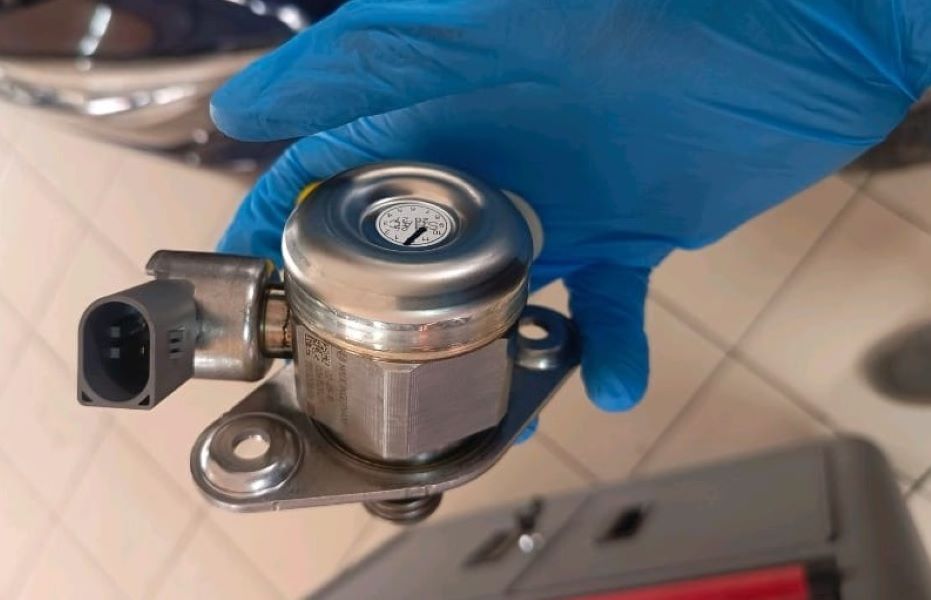
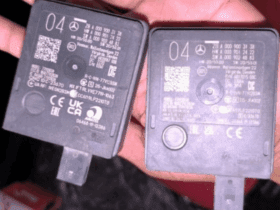
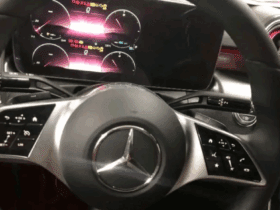
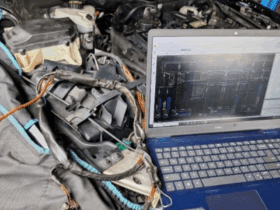
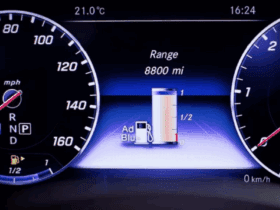
Leave a Reply